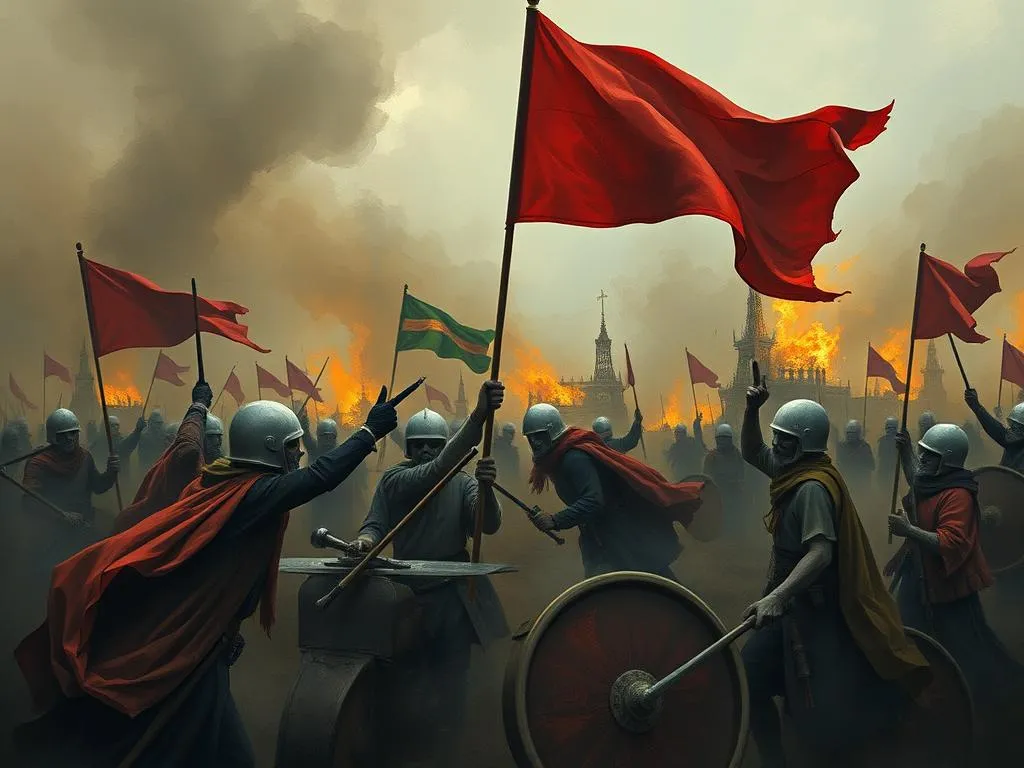Introduction
The concept of ‘being war’ may seem like a contradiction in terms, but when we delve into the spiritual meaning of conflict, we uncover a deeper understanding of our own inner battles and the transformative power of resolution. In this article, we’ll explore the spiritual significance of ‘being war’ and how embracing this duality can lead us to a greater sense of peace, both within and without.
The idea of ‘being war’ is a paradox that challenges us to confront the dualities within ourselves. Being war suggests a state of ongoing struggle, a constant battle between opposing forces. Yet, at the same time, it invites us to consider the spiritual lessons that can be gleaned from this inner turmoil. By acknowledging the ‘being war’ within, we can begin to understand the profound wisdom that lies at the heart of conflict.
Key Takeaways
- The spiritual meaning of ‘being war’ is about embracing the duality within ourselves and using it as a catalyst for growth and transformation.
- Conflict can be a powerful tool for self-discovery, as it forces us to confront our deepest fears, insecurities, and shadows.
- Resolving the ‘being war’ within can lead to a greater sense of inner peace, harmony, and alignment with our true selves.
- Navigating the spiritual meaning of ‘being war’ requires a delicate balance of surrender, self-awareness, and a willingness to face our own inner battles.
The Duality of ‘Being War’
At the core of the spiritual meaning of ‘being war’ is the acknowledgment of the inherent duality within ourselves. We are not simply one-dimensional beings; we are a complex tapestry of light and shadow, strength and weakness, love and fear. This duality is not something to be feared or suppressed, but rather embraced and integrated.
When we speak of ‘being war,’ we are recognizing the ongoing battle that takes place within our own minds and hearts. It’s the struggle between our higher and lower selves, our desire for growth and our attachment to comfort, our longing for peace and our propensity for conflict. This inner war is not a sign of weakness, but rather a testament to the depth and richness of the human experience.
Conflict as a Catalyst for Growth
Far from being a purely negative force, the spiritual meaning of ‘being war’ can be a catalyst for profound growth and transformation. Conflict, whether internal or external, forces us to confront our deepest fears, insecurities, and shadow aspects. It challenges us to step out of our comfort zones, to question our beliefs, and to confront the parts of ourselves that we would rather ignore.
In this way, the ‘being war’ within can be a powerful tool for self-discovery. By facing our inner battles head-on, we can uncover the hidden wisdom and strength that lie within us. We can learn to navigate the turbulent waters of our own emotions, to find the stillness at the center of the storm, and to emerge from the experience with a greater sense of self-awareness and resilience.
The Art of Resolving the ‘Being War’
Navigating the spiritual meaning of ‘being war’ is not an easy task, but it is a journey that can lead us to a greater sense of inner peace and alignment. It requires a delicate balance of surrender, self-awareness, and a willingness to face our own inner battles.
One of the key aspects of resolving the ‘being war’ within is the practice of surrender. This doesn’t mean giving up or admitting defeat, but rather acknowledging that we cannot control everything and that sometimes, the best thing we can do is let go. By surrendering to the process of growth and transformation, we open ourselves up to the possibility of finding a deeper sense of harmony and balance.
At the same time, self-awareness is essential. We must be willing to confront the parts of ourselves that we would rather ignore, to shine a light on our shadows, and to embrace the duality that exists within us. This requires courage, vulnerability, and a deep commitment to our own personal growth.
Finally, the art of resolving the ‘being war’ within also involves a willingness to face our own inner battles. This means acknowledging the conflict, exploring it with curiosity and compassion, and finding ways to integrate the opposing forces within us. It’s a journey of self-discovery and self-acceptance, one that can lead us to a greater sense of wholeness and integration.
The Transformative Power of Resolving the ‘Being War’
When we embrace the spiritual meaning of ‘being war’ and commit to resolving the inner conflict within us, we unlock a profound sense of transformation and growth. By facing our fears, confronting our shadows, and finding the stillness at the center of the storm, we can cultivate a deeper sense of inner peace and alignment.
This transformation can manifest in a variety of ways. We may experience a greater sense of self-acceptance and self-love, as we learn to embrace the duality within us. We may also find that our relationships with others deepen and become more authentic, as we learn to communicate and connect from a place of greater self-awareness and vulnerability.
Moreover, the resolution of the ‘being war’ within can lead to a greater sense of purpose and direction in our lives. By integrating the opposing forces within us, we can tap into a wellspring of creativity, intuition, and inner wisdom that can guide us towards a more fulfilling and meaningful existence.
Conclusion
The spiritual meaning of ‘being war’ is a paradox that invites us to confront the duality within ourselves and use it as a catalyst for growth and transformation. By embracing the inner conflict, facing our fears and shadows, and finding the stillness at the center of the storm, we can cultivate a deeper sense of inner peace, harmony, and alignment with our true selves.
This journey is not an easy one, but it is a profoundly rewarding and transformative experience. As we navigate the spiritual meaning of ‘being war,’ we are invited to step into a greater awareness of our own complexity, to find the courage to face our inner battles, and to unlock the transformative power that lies at the heart of conflict.
So, what does ‘being war’ mean to you? How can you use this paradox as a tool for personal growth and self-discovery? I invite you to explore these questions and embark on your own journey of resolving the ‘being war’ within.








